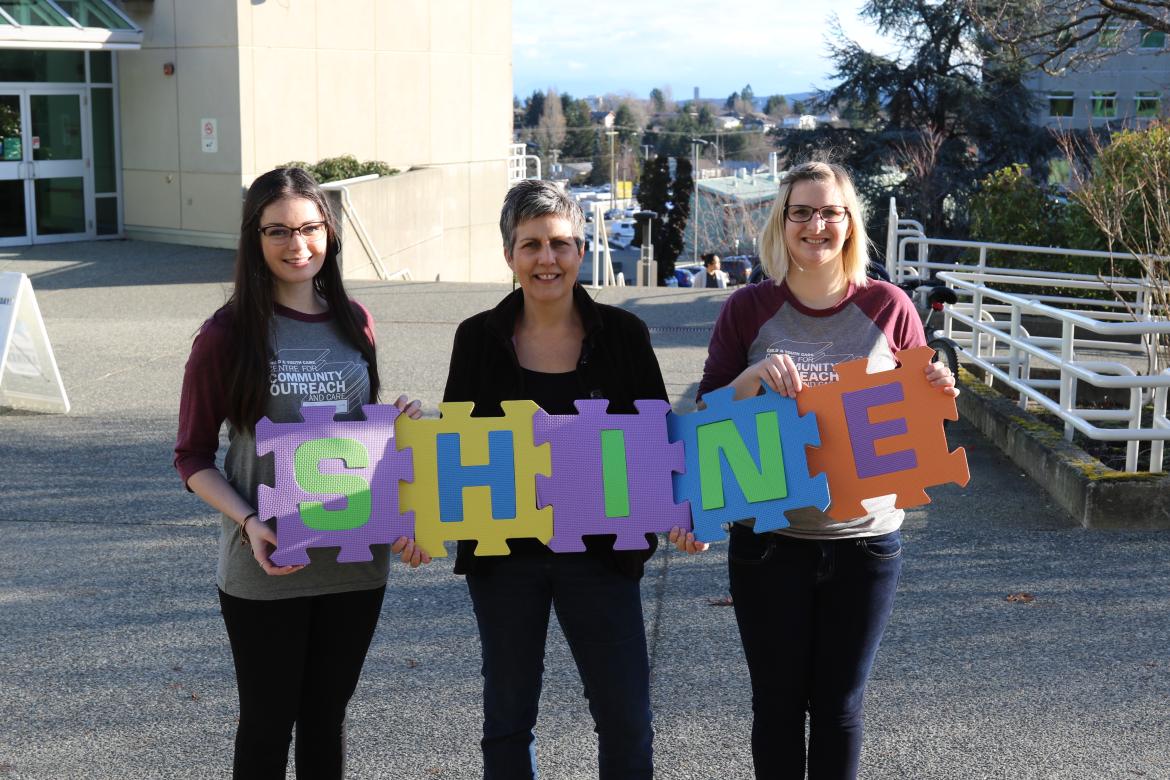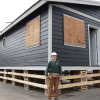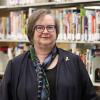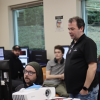
Photo Caption: Emma Gillis (left), Teri Derksen, and Abby Lise want to help children touched by the opioid crisis Shine. Photo Credit: Vancouver Island University
February 20, 2018 - 8:45am
Societal stigma biggest obstacle in helping those in need
It has been called the most urgent healthcare crisis today. A few times each year, the Ministry of Health for British Columbia releases statistics, which indicate more than three people every day are dying of opioid poisoning in the province. The substances doing the killing are fentanyl and carfentanyl.
The stories that accompany the statistics are usually of burnt-out frontline first responders who spend their days reviving people. It is a grim view of a desperate situation, but only paints a small part of the picture. In every crisis, there are invisible victims, and those are the ones Vancouver Island University (VIU) Child and Youth Care students Abby Lise and Emma Gillis are determined to help.
Both women are third-year students currently working on their practicums through the Centre for Community Outreach and Care.
“Behind every statistic, there is a person with family and friends who have been deeply affected by the opioid crisis. When we started developing the programming for our practicums, we realized there weren’t many supports in place for children who were affected,” said Gillis. “Statistically, we know that poisonings are most likely to happen in the home, and there are often children there who are deeply traumatized by these events.”
Gillis and Lise developed two different programs to support children in different ways. Gillis’ goal is to break down the deeply ingrained stigma of this kind of drug use by starting a rich community dialogue that focuses on how children are affected. Lise is starting a program for children ages 9-12 who have been affected by the crisis.
“We realized we needed to develop an outreach program for children to talk about their experiences. We also realized that to begin to heal, we needed to bring this conversation forward so people could start to see the humans behind the numbers, and understand that it affects everyone,” said Child and Youth Care Professor Teri Derksen.
Gillis recently received funding from the Canadian Institute for Substance Use Research, which she will use to begin the community discussions, starting with service providers and moving to community members, including those impacted directly by the crisis. Gillis has partnered with representatives from Island Health; Aboriginal Child & Youth Mental Health, which is a department in the Ministry of Children and Family Development; and NARSF, a community group that provides resources to families. These groups are working together to bring more service providers to the table.
“We know these community groups have direct communication with the people we are trying to help, but reaching them can be challenging, so we’re asking for help,” Gillis says.
It’s the same problem Lise is running into.
“I’m hearing from all these groups that this is a good idea, but people who know children or have children who have been affected often feel so alone and isolated, we’re having a hard time reaching them,” she says. “That alone says a lot about how important the programming is.”
Lise’s program, which she calls Shine, starts on February 27 and runs once a week for seven weeks. Each hour-and-a-half session includes physical activity games, arts and crafts, while providing a safe space for children to talk about their own experiences.
“The program isn’t full yet, and of course I’m hoping it will be,” she says. “The goal is for these children to have some fun and feel safe while working through some tough stuff.”
Derksen’s goal is to ensure the programming continues through the Centre for Community Outreach and Care for as long as there is a need.
“Many groups are working to deepen our understanding of addiction and the community impact, economic impact and importance of early intervention for children,” she says. “We are working with the community to build on that with a focus on helping children, youth and families. We want to make sure that this great programming can continue even after Abby and Emma have completed their practicums. We know the community will deeply benefit from this work.”
To contact Lise regarding spaces, email shine4meprogram@gmail.com.
Learn more about VIU’s Child and Youth Care programs here.
-30-
MEDIA CONTACT:
Aly Winks, Communications Officer, Vancouver Island University
P: 250.740.6529 | C: 250.618.7930 | E: alyson.winks@viu.ca | T: @VIUNews
Tags: Child and Youth Care | Teaching and Learning






